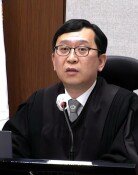Moon should listen to all Koreans, not just his supporters
Moon should listen to all Koreans, not just his supporters
Posted January. 01, 2020 07:50,
Updated January. 01, 2020 07:50
“With the historically lowest rate of bill passage, the National Assembly is described to be in a ‘vegetative state’ and the National Assembly Advancement Act has become practically ineffective,” South Korea President Moon Jae-in said on Monday. This was Moon’s criticism of the chaotic National Assembly as a result of collisions between the ruling and opposition parties regarding an election bill and a bill for investigative powers reform. However, President Moon is not in a position to blame the National Assembly with no involvement in the matter.
Unfortunately, South Korea’s parliamentary democracy has regressed in the process of forced processing of the two bills. The ruling party employed all kinds of “tricks” to pass the bill for investigative powers reform, which is the No. 1 pledge made by the president to reform investigative authorities. A “4+1” consultative body was established by luring minor opposition parties while excluding the main opposition party. The election bill is basically a behind-the-door deal to grant more seats for proportional representation to the minor opposition parties. The national budget with the size of over 500 trillion won was secretly discussed at the last moment by the “4+1” consultative body. Behind all of such processes must have been invisible pressure from the presidential office Cheong Wa Dae.
In addition, as the concerns about deviating votes in the “4+1” consultative body remained right before the voting for the investigative powers reform bill, an agreement promising electoral districts to be determined in a way to guarantee maximum representation of agricultural, mountain, and fishing towns was provided. The promise to restore constituencies of the minor opposition parties’ candidates was also made to prevent deviating votes, which one may rightfully describe as “vote-buying.” It is a statement that the “4+1” system led by the ruling party will play solo breaking the negotiation structure between the ruling and minor opposition parties centered around negotiation bodies.
“The election act is the rules of the game. It has never been pushed by one side or passed directly by the speaker of the National Assembly,” President Moon himself sternly said back in 2016 as the then-chairman of the opposition party. Now, however, the leading opposition Liberty Korea Party has been completely excluded from negotiations for the passage of the “4+1” election bill and the bill itself was practically passed by National Assembly Speaker Moon Hee-sang. There shouldn’t have been this poor precedent just because his former party has become a ruling one.
Now, the Moon Jae-in administration will mark its fourth year, which must show its policy achievements one by one to the people. The forced passage of the “4+1” election bill and the investigative powers reform bill, not in line with the norms of negotiations, have only served the supporters of President Moon, not all people. There seems to be underlying the political calculation to secure a support base to win the 2020 general elections. However, a president should be evaluated for leadership that integrates public opinions going beyond the role to represent the interests of a political party and supporters. President Moon should read the underlying sentiment of all people, rather than only paying attention to his supporters.
jyw11@donga.com







